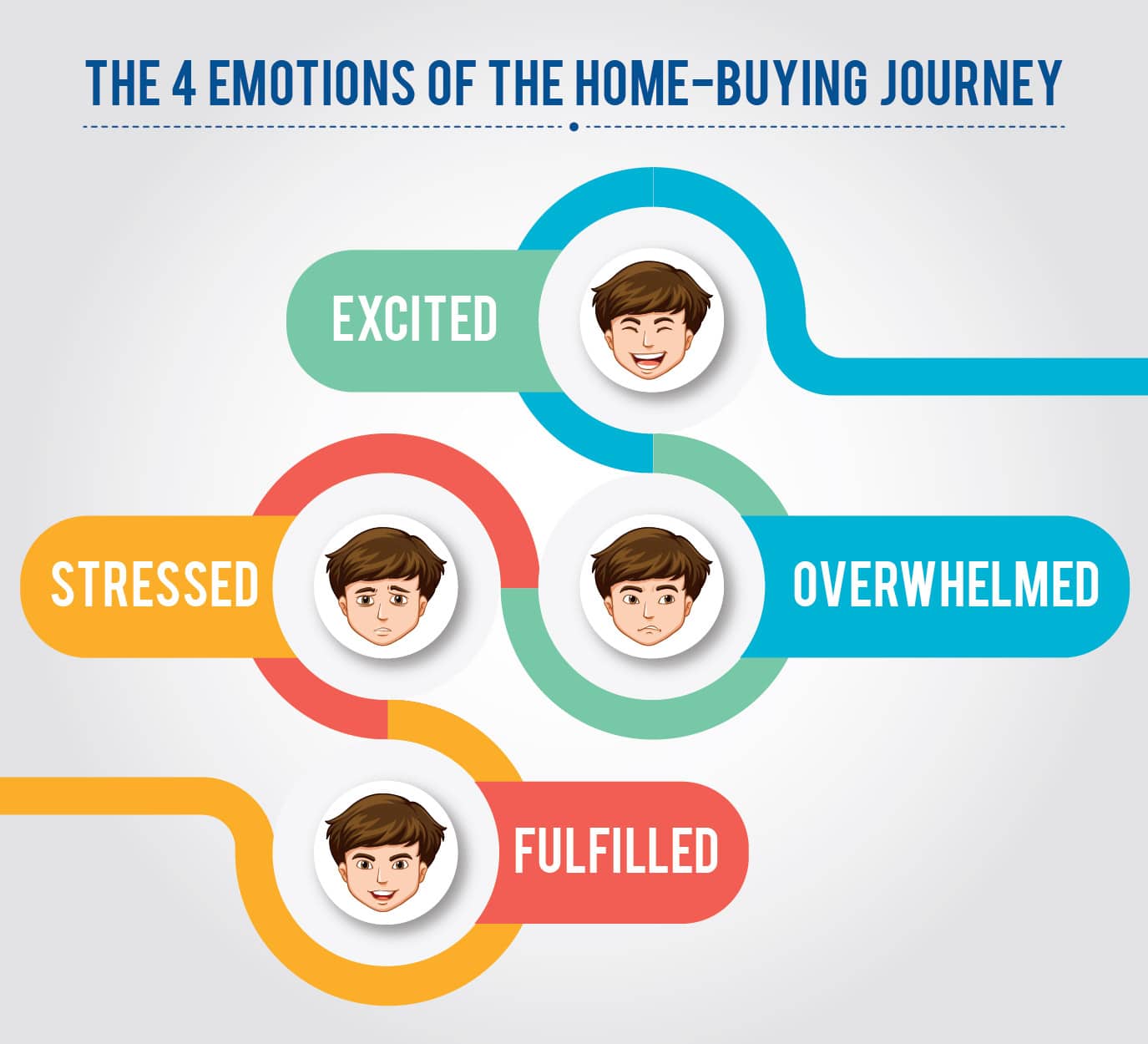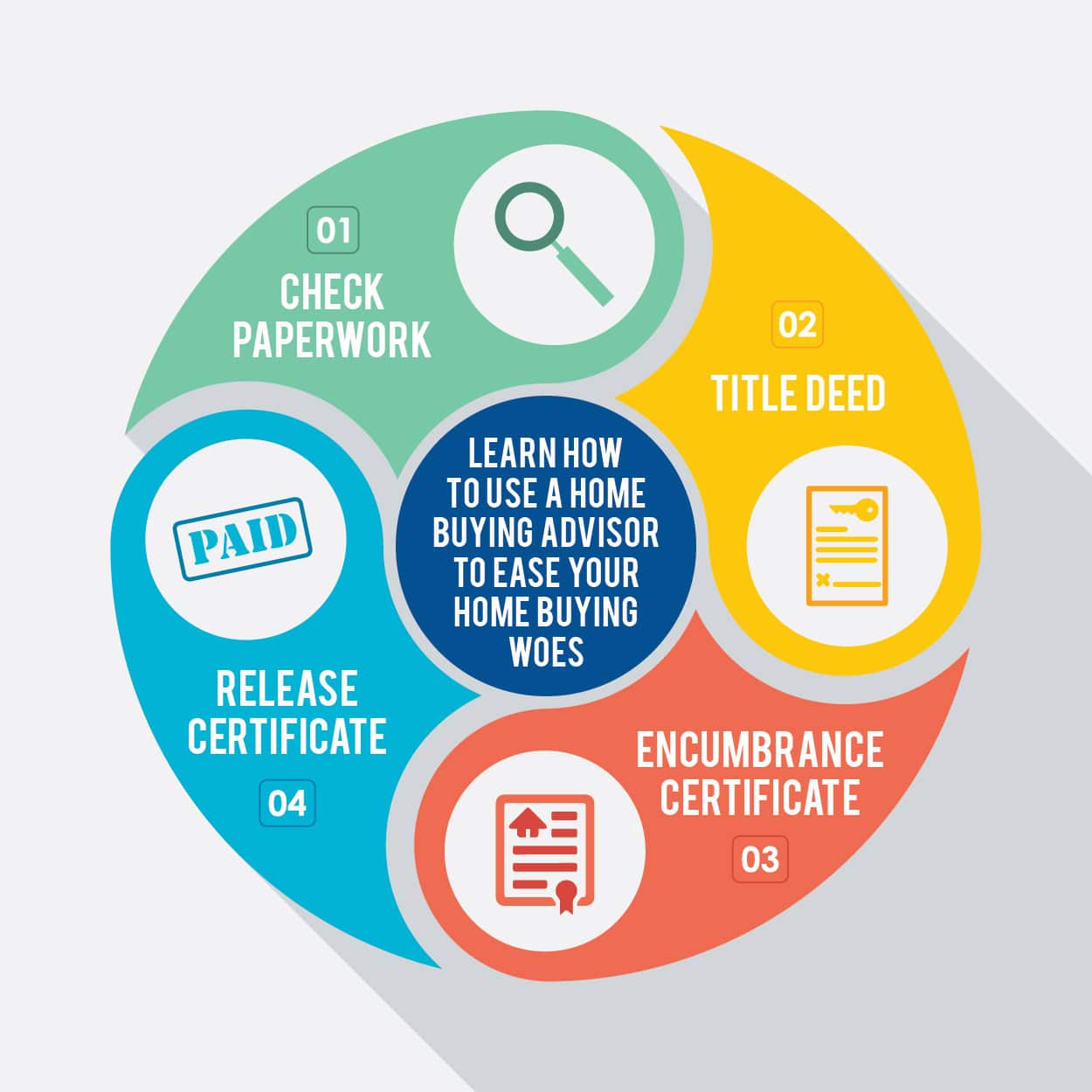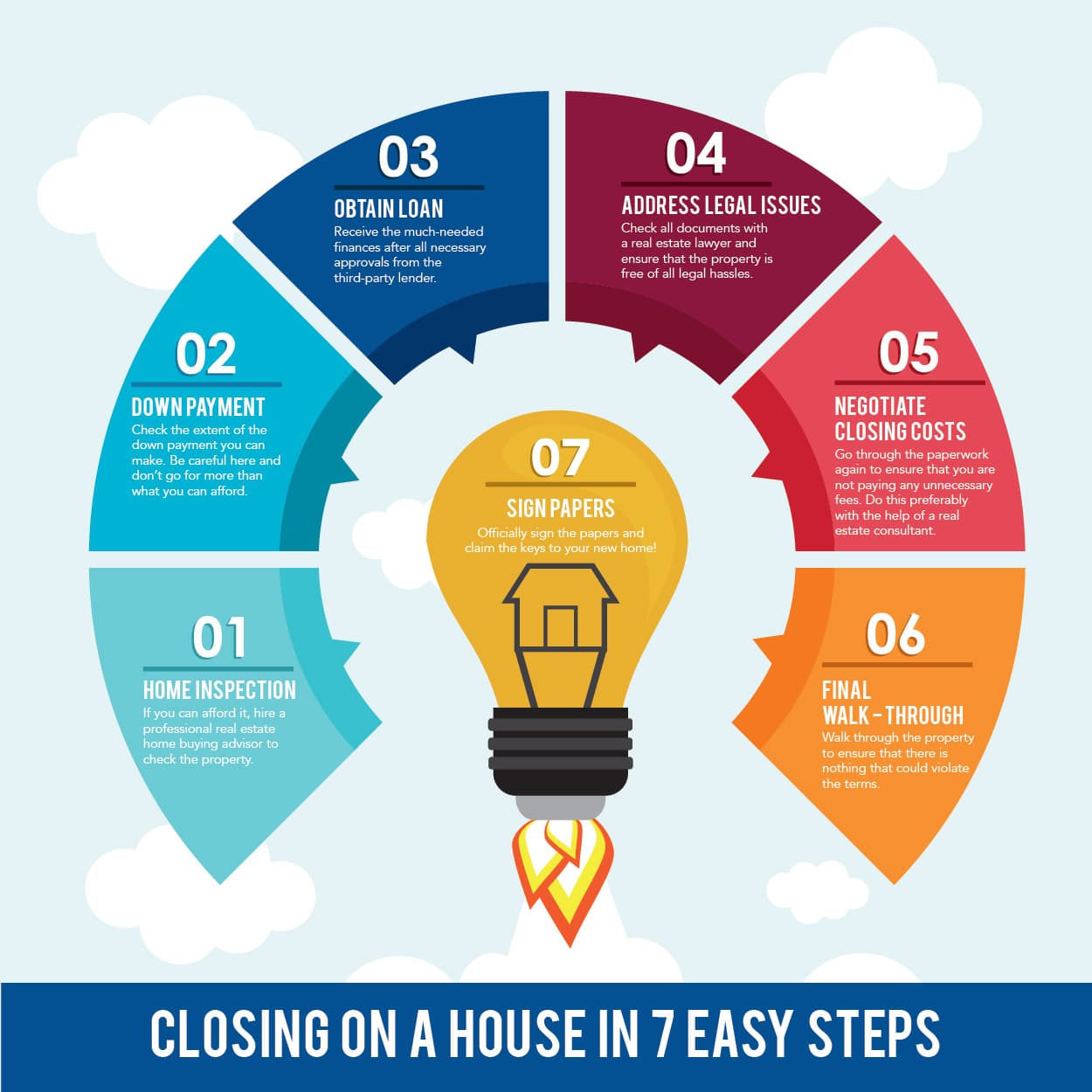Ah! Home buying! Buying a home is vested with more emotion than any other financial decision you may make during your lifetime.
The culmination of years of blood, sweat and tears, this monumental event comes with its own share of stress.
Many aspects of buying a home are beyond your control and just waiting for other people to make decisions can lead to a lot of anxiety.
Whether it’s dealing with copious amounts paperwork or waiting for the home loan to get approved, nothing comes close to the stress of buying a home. Add to that, a few more months to transform the house into a home.
You may face several challenges at every stage of the journey but remember that keeping your nerve will help you reach the finishing line.
Why is house hunting so stressful?
Property sales are lengthy and complex transactions and require your undivided attention. With dozens of things that may go wrong, the process is bound to leave you at your wits’ ends. A survey conducted in the United Kingdom shows that buying a home is more stressful than bankruptcy, divorce, and even the death of a loved one!
From the initial euphoria of finding the home of your dreams to the reality of financing it, the home-buying cycle is a roller coaster of emotions. Here’s a list of factors that can leave you flustered during the home buying journey:
Misleading model flats: Builders use the finest furnishings and fittings to do up the model flat so that it looks appealing to prospective buyers. But these fancy trimmings may be misleading, and the actual apartment delivered to you could fall short of your expectations.
Rejection of home loan: Even after meticulously filing paperwork and completion of formalities, a bank or lending institution can still reject your home loan. Repeating the same process with fear of rejection by another bank may bog down even the most tenacious home seekers.
Miscalculating operational costs: First-time buyers may forget to factor in additional costs such as maintenance, furnishings, repair, and renovation to the overall cost of the purchase. Moreover, the cost of new fittings and installation of electric appliances may exceed your budget giving you more reasons to fret.
Canny agents: Agents charge around 1% commission from each party on the sale of property. An expensive sale means a higher commission for agents. As they stand to gain from a high-stakes deal, they may push you towards one.
Mammoth documentation: The endless list of documents, legal jargon, and paperwork involved in a property deal can send you into a tizzy. Understanding the minutiae of property transactions is a daunting task that can require expert help.
Financial exposure: A home is the sum total of a lifetime of savings, and this single decision has serious financial ramifications. From putting together funds for the down payment to the monthly burden of an EMI, a property deal can put a serious strain on your finances.
Unreasonable sellers: You may have your heart set on a particular house, but the seller may not agree to your offer. The process of endless negotiations, offers and counter-offers can be nerve-wracking.
Defects revealed on a home visit: Your chosen property may be all shiny on the surface, but a home inspection may reveal serious defects such as termite infestation, leakage, and structural defects.
The 4 emotions of the home buying journey

Ways to reduce stress
The above list may just give you a minor panic attack, but don’t give up so soon. Like all problems have solutions, there are more than a few tricks to get around these issues. Here’s how you can go about reducing the stress of home buying:
Determine your budget
Long before you start browsing for leads, you must decide how much you are willing to spend on a new home.
With a budget in hand, the task of looking for a property becomes simpler and easier. The price of a residential property is determined by location, the condition of the house, and its features and amenities.
As you look at different options, resist the temptation to opt for a property that exceeds your budget. This single decision will keep your finances in check and save you from unnecessary stress in the future.
Separate wants from needs
It’s vital to understand your needs and requirements from a property before you go house hunting.
It’s a good idea to sit with your family and brainstorm a list of what you absolutely require in a home and features that may be dispensable.
You may not want to compromise on the proximity of preferred schools and your workplace to your home.
On the other hand, amenities such as a jogging track, swimming pool, and gymnasium may be negotiable. Narrowing down the essentials will refine your search and significantly ease the home buying process.
Conduct a background check on the builder
Before investing in a property, check on the developer’s background and reputation.
Your best bet is to speak to residents staying within the property of your choice or other properties developed by the same builder.
If you choose a property within a gated community, check if the developer will provide amenities reserved parking, club house, continuous power and water supply etc. Before taking possession of your property, make sure that the builder has kept his side of the deal and has provided you with all the conveniences as promised in the agreement.
Choose a good lender
The highest priority for home buyers while shopping for a home loan is a low rate of interest. Equally important is to deal with a lending institution that is empathetic and understands the fears and worries of a homebuyer.
Bank executives should be willing to patiently answer all your questions and simplify financial jargon. An understanding financial partner can go a long way in making the home-buying journey less arduous.
Inspect the property
You must inspect the property thoroughly for any damages such as termite infestation, leakage or structural flaws.
Make sure the builder has conformed to all critical safety standards laid down by proper authorities, such as the National Building Code. While inspecting the property, check for fire exits, fire extinguishers, smoke detectors, etc.
The day before signing a deal, give the property a final walk through to ensure that there aren’t any new structural damages or safety issues.
In case you have invested in an under-construction property, keep a tab on the progress of the work by visiting the site.
Check if the tiles, bathroom fittings, and electrical fittings are the same as promised at the time of booking the flat. These trips may mean extra legwork, but they will create pressure on the builder to stick to quality standards and deliver your home on time.
Check paperwork

Minor errors like misprints and typos in the paperwork can waste precious time and cause much heartburn later. It’s vital to go over all paperwork with a fine-tooth comb before the closing date. Here’s a checklist of important documents to check before closing the deal:
- Title Deed: You must check whether the seller has a right to the property. Check the title deed for basic information like the name of the owner and location. Confirm whether the property is in the name of the seller and that the full right to sell the land lies with him and no other person. It is advisable to get the original deed examined by a credible lawyer.
- Encumbrance Certificate: Before buying a property, it’s vital to confirm that the land is free from legal dues. For this, check Encumbrance Certificate for at least 30 years. It will reveal the prevalence of legal disputes or complaints. This certificate is available at the area sub-registrar’s office wherein the deed of the land is registered.
- Release Certificate: In some cases, the property may have been pledged to obtain a bank loan. In such a scenario, you will have to get a release certificate from the bank, which ensures that the loan on the land has been completely repaid. In case there is more than one owner, do take the certificate from all the stakeholders.
Ensure necessary approvals
You must ensure the property has been registered in your name with the authorized regulatory body. For instance, in Bangalore, the key authorities are Bruhat Bengaluru Mahanagara Palike (BBMP) and Bangalore Development Authority (BDA).
It is very important to verify the land-use zone as per the city master plan for the plot. You can obtain the city master plan from the local body office in your respective city.
A property could be improperly zoned or have encroachment or easement issues. In some cases, the property cannot be insured for homeowner insurance. Watch out for all these issues before purchasing a property.
Check property tax receipts and bills
It is essential to ensure that all taxes connected to the plot have been paid at the time of purchase.
You must ask the seller for previous property tax receipts that he may have paid along with other bills related to the plot.
A systematic handover of tax obligations will ensure that you don’t have to deal with any issues in the future.
Review the contract carefully
Don’t be in a rush to sign on the dotted line and make sure to review the contract thoroughly and understand every single clause.
You don’t want to be burdened with extra fees or miss crucial information. So, seal the deal only when you are well-versed with the contract and understand all the terms.
Pay special attention to contingencies in the contract that may impact your deal. Make sure there is no contingency in the contract that says a property will be bought as long as the seller can sell his own house first. This will ensure that your deal remains insulated from the status of any other transaction.
Partner with a reliable agent
It is imperative to hire a professional and knowledgeable agent who can handhold you through the above challenges and help you land a good deal.
Working with a good real estate agent may be necessary as he/she is your best bet to avoid potential problems. You may consider not hiring an agent to save brokerage but this decision may be counter-productive.
Well-versed with all the tricks of the trade, agents are able to manage all aspects of a property deal. You can count on your agent to point out the pros and cons of various options and make home buying a less stressful experience for you.
Closing on a house in 7 easy steps

Conclusion
Let’s admit it: home buying is a lot of hard work and will never be completely stress-free. While you can’t avoid some inevitable stress-triggers, you can certainly work on how to deal with them.
Home buying requires persistence and patience, so when in doubt, slow down and take a fresh perspective.
Every once in a while, clear your mind and do the things that you enjoy. This will ensure that you are not a bundle of nervous energy while making one of the most important decisions of your life.
As long as you do your homework and hire the best professionals, you will give yourself the highest probability of a smooth and hassle-free deal.



Really interesting article. It has simplified so many things and has even pointed out certain stress trigger areas. I think ok doing an independent homework one should also find a trustworthy advisor who can help in passing on the necessary information. Nowadays because of presence of international developers there are in-house teams who brilliantly execute these questions and answer round and help buyers in identifying problems and providing solutions.
Hello Dear,
How’s it going on today? I was checking out some of your other posts and noticed that you have published fantastic contents since the beginning of your site. keep it up.
Thank you